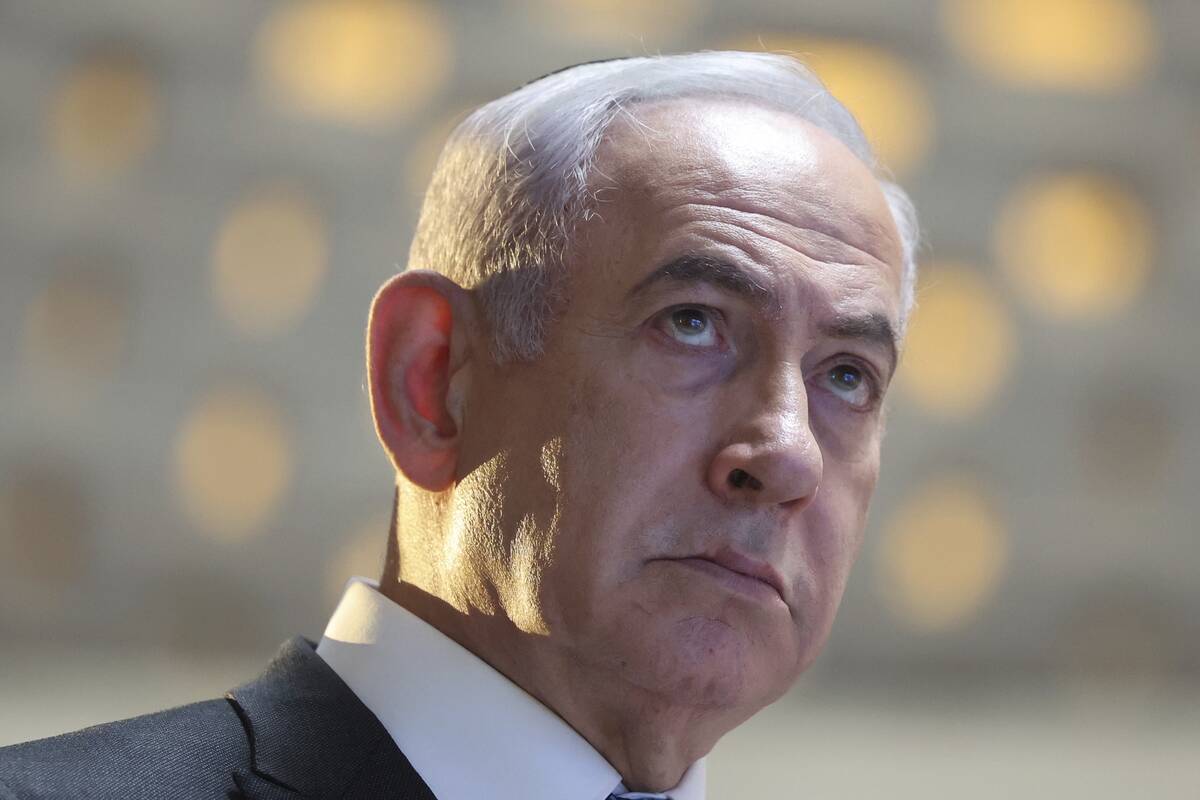Netanyahu makes surprise visit to Israeli troops in Gaza

JERUSALEM — Israeli Prime Minister Benjamin Netanyahu made a surprise visit to troops in southern Gaza on Thursday, saying it was essential that Israel keep control of a strip of territory along the territory’s border with Egypt, just days before he was set to give a speech to the U.S. Congress.
In his comments at Gaza’s southernmost city of Rafah, Netanyahu sounded a tone of triumph in the campaign against Hamas terrorists — and underscored the differences that still remain in monthslong attempts to reach a cease-fire.
A U.S.-backed outline for a deal calls for an eventual full Israeli withdrawal from Gaza in return for a full release of hostages by Hamas terrorists, something a continued Israeli grip on the Rafah border crossing and nearby border strip would appear to contradict.
Netanyahu’s visit to Rafah was announced hours after Israel’s national security minister, Itamar Ben-Gvir, visited Jerusalem’s most sensitive holy site.
Ben-Gvir said he went up to the flashpoint site to pray for the return of Israeli hostages “but without a reckless deal, without surrendering.” Israeli negotiators landed in Cairo on Wednesday to keep working on the talks.
The two leaders’ visits came hours after Israel’s parliament overwhelmingly passed a resolution rejecting the establishment of a Palestinian state. The vote, in an overnight session that lasted into Thursday morning, was largely symbolic and meant to send a message ahead of Netanyahu’s trip to the United States.
Netanyahu’s office announced his visit to Rafah once the prime minister had exited the war-torn Palestinian territory. Israeli forces invaded Rafah in early May.
Netanyahu toured the Rafah crossing with Egypt and from a viewpoint saw the Philadelphi corridor, a narrow strip running the length of the Gaza side of the border with Egypt. The Israeli military seized control of both early in the Rafah assault, and it says that since then troops have uncovered Hamas smuggling tunnels into Egypt.
Netanyahu said his talks with troops and commanders had made him “stronger in the understanding that our control of the Philadelphi corridor and of the Rafah crossing are essential going forward,” his office said in a statement.
Israeli leaders have signaled that the Rafah operation is close to finished — a step that is expected to lead to a new, lower-intensity phase of the war and could possibly improve conditions for a cease-fire. Israel has previously said Rafah was Hamas’ last major stronghold in Gaza.
But differences still remain in the talks over the three-phase deal, which starts with a halt in fighting and a partial hostage release. The outline says the deal is to lead to an end to the war and complete Israeli withdrawal — a top Hamas demand for a full hostage release. But it also says the two sides must negotiate the terms for that during the initial cease-fire phase. Hamas wants stronger guarantees, while Israel has suggested it will demand Hamas be removed from power in those negotiations.
In his comments in Rafah, Netanyahu also said Israel demands “a maximum number of hostages” to be released in the first phase.
In recent weeks, Israel has stepped up strikes in central Gaza. Israel’s military said it targeted a senior commander from the terrorist Palestinian group Islamic Jihad’s naval forces in Gaza City, and another Islamic Jihad commander responsible for launches in the city of Shijaiyah.
On Friday, the U.N.’s International Court of Justice is expected to issue an advisory opinion on the legality of Israel’s 57-year occupation of the Palestinian territories, an ongoing legal case not connected to the current Israel-Hamas war.
Israel also said it killed a senior commander affiliated with Hamas and other terrorist groups in Lebanon. In a statement, Sunni al-Jamaa al-Islamiya, or the Islamic Group, identified him as Mohammad Hamed Jabbara and said he was killed in a strike in the western Bekaa area in Lebanon not far from the Syrian border. The Israeli military described Jabbara as a Hamas operative in Lebanon who helped coordinate Islamic Group attacks targeting northern Israel.
The war in Gaza, which was sparked by the Oct. 7 Hamas-led terrorist attack on southern Israel, in which 1,200 people, mostly civilians, were killed and terrorists took about 250 hostage. About 120 remain in captivity, with about a third of them believed to be dead, according to Israeli authorities.
The ensuing war in Gaza has killed more than 38,600 people, according to the Hamas-run Health Ministry, which does not distinguish between combatants and civilians in its count.